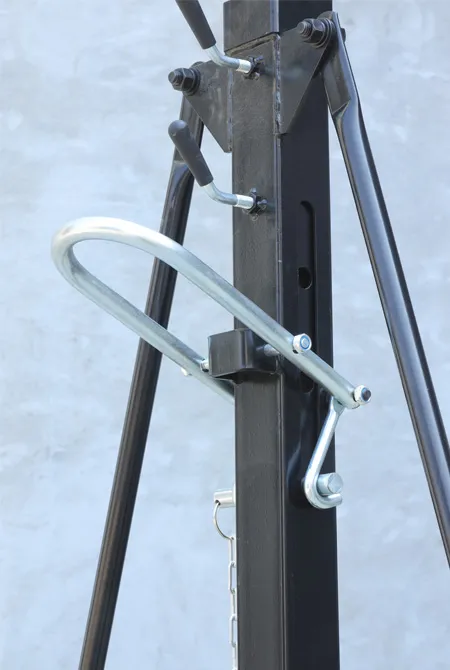cargo rollers
Understanding Cargo Rollers A Key Component in Material Handling
In the realm of logistics and material handling, cargo rollers play a pivotal role in ensuring efficient and smooth transportation of goods. These specialized systems are designed to facilitate the movement of cargo, particularly in warehouses, distribution centers, and shipping facilities. By examining the characteristics, advantages, and various applications of cargo rollers, we can appreciate their importance in modern supply chain operations.
Cargo rollers, often referred to as roller beds or conveyor rollers, are cylindrical structures that enable the easy transfer of items from one location to another. They are typically made from durable materials such as steel or plastic, ensuring they can withstand heavy loads while maintaining functionality. Cargo rollers are strategically positioned to create a conveyor belt-like system, where gravity or powered motors drive the movement of goods.
One of the primary advantages of using cargo rollers is their ability to significantly reduce labor costs and improve efficiency. Traditionally, manual handling of freight is labor-intensive and time-consuming. However, by implementing a roller system, employees can move large quantities of goods with minimal effort. This is particularly beneficial in environments where items are frequently loaded and unloaded, as it streamlines the process and allows employees to focus on other essential tasks.
cargo rollers

Furthermore, cargo rollers contribute to safety in the workplace. Manual lifting and carrying of heavy items can lead to injuries and associated costs for companies. By utilizing automated systems with cargo rollers, the risk of accidents decreases significantly. Employees can work in a more comfortable environment, and businesses can ultimately save on healthcare expenses and workers’ compensation claims.
Cargo rollers come in various designs to accommodate different types of cargo and operational needs. For instance, gravity rollers are widely used in scenarios where goods can be moved downhill, while powered rollers are more suited for transporting heavier items or where horizontal movement is required. Additionally, modular designs allow companies to customize their roller systems to fit specific layouts and workflows, ensuring maximum efficiency.
The versatility of cargo rollers also makes them suitable for a wide array of industries. In e-commerce fulfillment centers, for example, cargo rollers help in sorting and directing packages, speeding up the shipping process. In manufacturing, they facilitate the movement of products along assembly lines. In retail operations, they assist in the handling and stocking of merchandise. Ultimately, the adaptability of cargo rollers to meet the demands of various sectors enhances their value in the supply chain.
In conclusion, cargo rollers are a fundamental element of modern material handling systems. By promoting efficiency, minimizing labor costs, and improving workplace safety, they have become indispensable in today’s fast-paced logistics environment. As businesses continue to evolve and adapt to new challenges, the role of cargo rollers will likely expand, leading to further innovations and enhanced operational capabilities. Understanding and utilizing this crucial component can provide companies with a competitive edge in the logistical landscape.
-
Unlock Seamless Relocation with Our Heavy Equipment Moving ExpertiseNewsJun.06,2025
-
Unleash Unrivaled Flexibility with Our Adjustable Gantry CraneNewsJun.06,2025
-
Unleash Heavy-Duty Efficiency with Our Industrial Gantry Crane SolutionsNewsJun.06,2025
-
Revolutionize Steel Handling with Our Magnetic Lifter RangeNewsJun.06,2025
-
Master Equipment Mobility with Premium Machinery Mover SolutionsNewsJun.06,2025
-
Elevate Your Material Handling with Magnetic Lifter TechnologyNewsJun.06,2025
-
YS Permanent Lifting Magnets: The Smarter Way to Handle SteelNewsMay.22,2025
